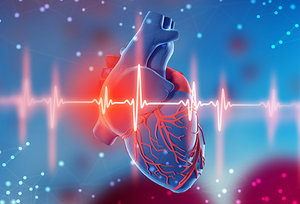Having Second Thoughts About Aspirin for Heart Attack Prevention
By Editorial Staff
New research questions the recommendation that healthy people – those without risk factors for heart attack or a previous attack – should be taking daily aspirin for preventive purposes.
The research, published in
Family Practice, suggests the risks from taking a daily baby aspirin may outweigh the benefits in people who have not suffered a heart attack or stroke due to cardiovascular disease.
The study compared older vs. newer research that evaluated the use of daily aspirin for primary prevention of heart attack / stroke, finding that newer studies have not shown the same benefits as older studies in terms of preventing major adverse cardiovascular events (MACEs), strokes and other "bleeding events." In the researchers' own words, "for every 1200 persons who use aspirin for primary prevention for 5 years, there will be four fewer MACE and three fewer ischaemic strokes, but also three more intracranial haemorrhages and eight more major bleeding events." As a result, the study authors conclude that aspirin should no longer be recommended for primary prevention, noting that their findings may also reflect changes in diagnosis and treatment strategies (improved screening and use of other drugs, such as statins) that make aspirin use unnecessary.
 If you're healthy and aren't currently at risk for cardiovascular disease (or suffering from it), these findings suggest you don't need to take daily aspirin for prevention. If you are at risk or currently suffer from heart disease, you also may not need to take aspirin, according to these findings. The most important point is to talk to your doctor before taking any medication, including daily aspirin: Ask about benefits vs. harms, natural alternatives to medication, and what you can do in terms of lifestyle changes (diet, exercise, stress reduction, etc.) to minimize your risk of a cardiovascular event without having to rely on aspirin or any other medication.
If you're healthy and aren't currently at risk for cardiovascular disease (or suffering from it), these findings suggest you don't need to take daily aspirin for prevention. If you are at risk or currently suffer from heart disease, you also may not need to take aspirin, according to these findings. The most important point is to talk to your doctor before taking any medication, including daily aspirin: Ask about benefits vs. harms, natural alternatives to medication, and what you can do in terms of lifestyle changes (diet, exercise, stress reduction, etc.) to minimize your risk of a cardiovascular event without having to rely on aspirin or any other medication.

